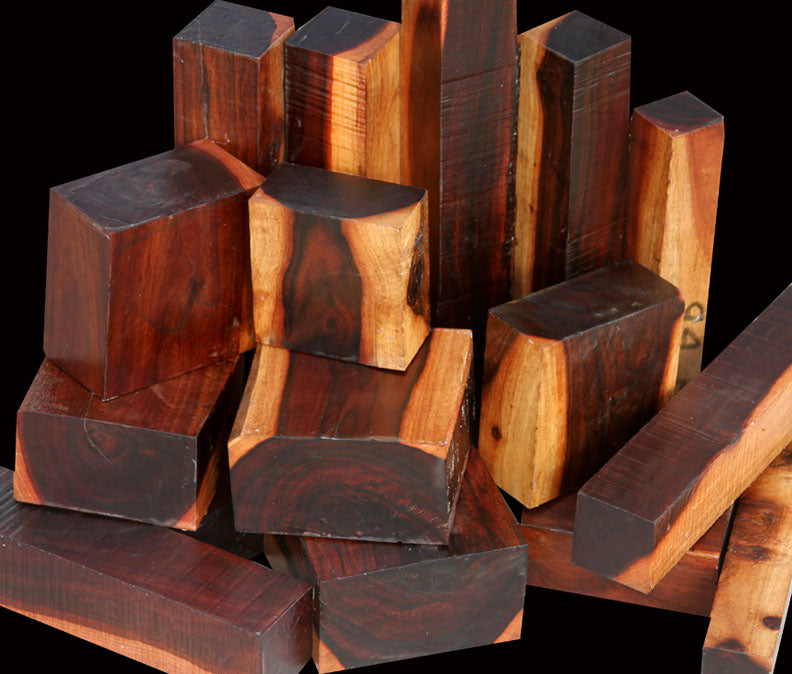
Rare & Sacred Pacific Rosewood (Milo) ~ Turns to Glassy Polish!
Milo (pronounced me-low), Thespesia populnea, can also be called Indian Tulip tree, Pacific rosewood, or Portia tree. The word Milo means to twist, curl, or spin; this name is also used in the Marshall Islands and American Samoa. The tree grows to 30-50 ft. tall with the crown spreading from 30-65 ft. wide.Trunk diameters of 12-20" are common with some larger. The yellow flowers with maroon centers are sometimes used to make leis. Though the flowers and young leaves are reported to be mildly poisonous, Milo is one of the few plants that were listed as an emergency food during World War IIby the US military for soldiers needing to live off the land. Milo wood has a nice spicy fragrance only when fresh, disappearing when carved into finished products. The dark heartwood is moderately heavy, easy to work with, has a low shrinkage in drying and is durable. The wood can be fashioned into beautiful items such as carvings, bowls and platters. It is considered a rare and sacred tree. The wood finishes to an incredible glassy smooth natural polish. It is ideal for small intricate articles, pens, and knives. Since it has a nice tap tone, Milo can be used for duck calls, flutes and musical instruments.
